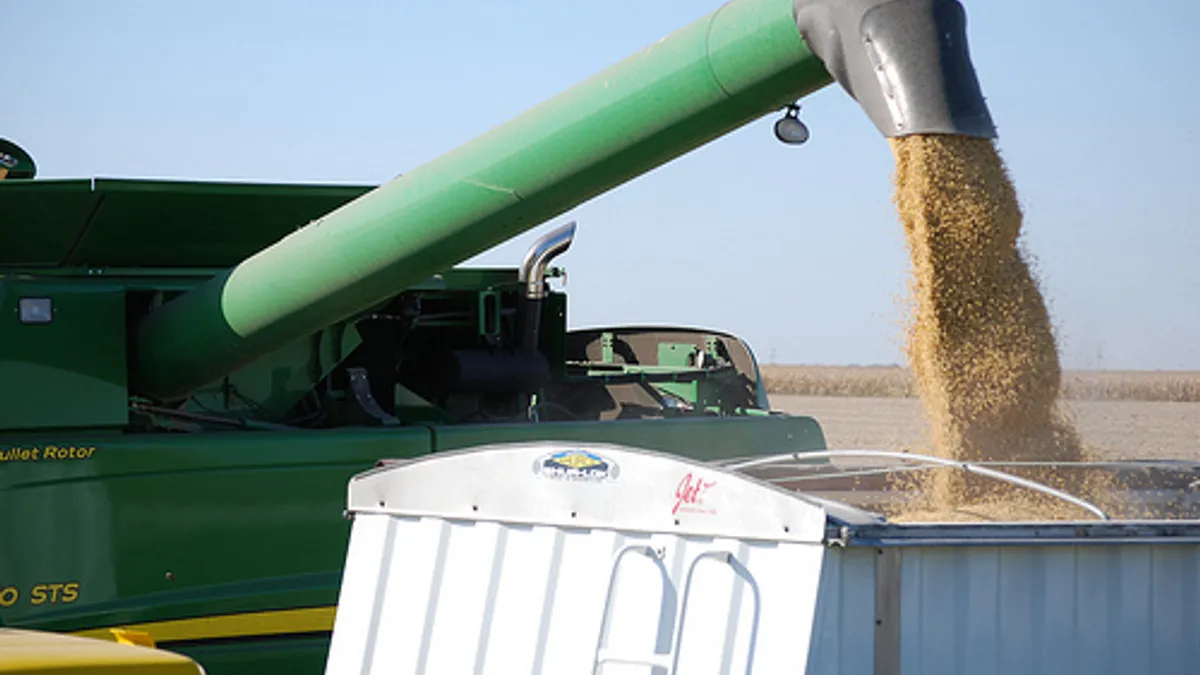Dive Brief:
- Brazil and Canada have seized the opportunity presented by the trade war between the U.S. and China to boost soybean sales to the world's largest purchaser of the crop. Soy exports from Brazil were up 85.2% year over year in the first two months of 2019, according to data from BIMCO.
- Canada quadrupled its January 2018 soy exports to China in January 2019, according to Bloomberg.
- Since U.S. exports have been low due to tariffs, stocks in storage are high, which could lead to a price drop should the tariffs be lifted. Both Brazil and Canada are preparing for this possibility, according to reports.
Dive Insight:
Though tariffs on Chinese imports are intended to increase the competitiveness of U.S. goods domestically and in the global marketplace, in some cases they have produced the exact opposite effect. At least when it comes to agriculture, other countries with already mature and competitive agricultural sectors have stepped in to satiate China's expansive appetite for soy.
The concern for U.S. farmers and shippers alike, especially now as tit-for-tat tariffs may be on their way out, is whether these changes in sourcing and market share will stick long after the tariffs are gone.
Last month, John Deere expressed skepticism that trade flows would revert to their pre-trade war state if tariffs lifted. "We've always said, the trade routes will be realigned and the trade flows will readjust and it's going to be bumpy when that happens for a couple of years," CFO Raj Kalathur said on the company's most recent earnings call.
C.H. Robinson CEO John Wiehoff also told analysts on a January call that the freight player is prepared if the shifts in sourcing that resulted from tariffs become permanent.
A recent survey by Purdue University found U.S. farmers are not changing their planting plans despite the tariffs and increasing international competition, which could exacerbate the projected price drops if the tariffs to indeed disappear.
But Brazil may not be able to keep its foot on the gas for too much longer anyway. Eduardo Sampaio Marques, a policy secretary at Brazil's ministry of agriculture, told Reuters the country's farmers would likely not be able to match last year's yields. The country is working on a plan to respond if the 25% tariff on U.S. soybeans coming into China is suspended soon. Some Canadian farmers are also seeing the potential end of the trade war as a sign to diversify crops away from soy.













